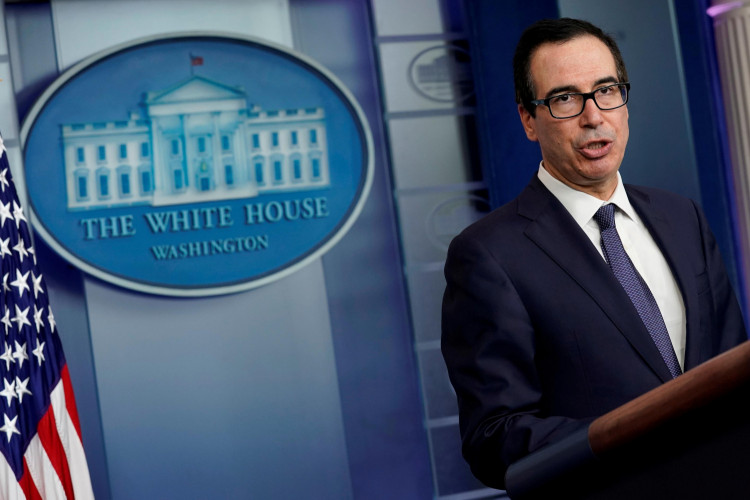China will no longer be labeled by the United States as a currency manipulator after the country has shown a serious commitment to not devalue its currency and agreed to make public its foreign exchange information.
US President Donald Trump's decision on Monday to delist China as currency manipulator was outlined in the Department of Treasury's semi-annual currency exchange document to the House of Representatives.
The report was submitted two days before Beijing and Washington are scheduled to ink a Phase One trade deal at the White House, sources with knowledge of the matter disclosed.
The Chinese have made enforceable commitments to avoid being devaluated while at the same time promoting transparency and accountability, said US Treasury Secretary Steven Mnuchin in a statement on Monday.
As a currency manipulator, the study listed no major US trading partner among the 20 economies it tracks for possible anomalies. The monitoring list covered Switzerland, while China, Korea, Japan, Italy, Germany, Singapore, Ireland, Malaysia, and Vietnam were spared.
According to the 45-page report, the Asian nation's involvement was made as part of the first step of a US-China trade harmony.
Beijing and Washington have been talking since the August 5 designation, which came in response to what the Treasury said was Beijing's "concrete steps" to devalue its currency.
Earlier Monday, Bloomberg News reported that the US Treasury would take China off its designation list, news that sent the yuan to a six-month peak.
The August classification further intensified the trade war with Beijing after the country's central bank allowed the Chinese currency to slide back on the US tariffs as a form of retaliation.
The document also urges the Chinese government to increase public understanding and cooperation between its central bank and state-controlled finance institutions' currency exchange activities, including the offshore renminbi market. According to the US Treasury, the People's Bank of China seems to have largely refrained from intervening in 2019.
The report was officially due in mid-October but was delayed as China and the US were at still at loggerheads on key trade issues. Being labeled as a "currency manipulator" is followed by no immediate sanctions but can rattle financial markets.
Currency policy has become Trump's latest weapon for reforming global trade laws that he claims has take a huge toll on American businesses and consumers. Trump has also made foreign exchange policy a key trading leverage with Canada, Mexico, and South Korea.





